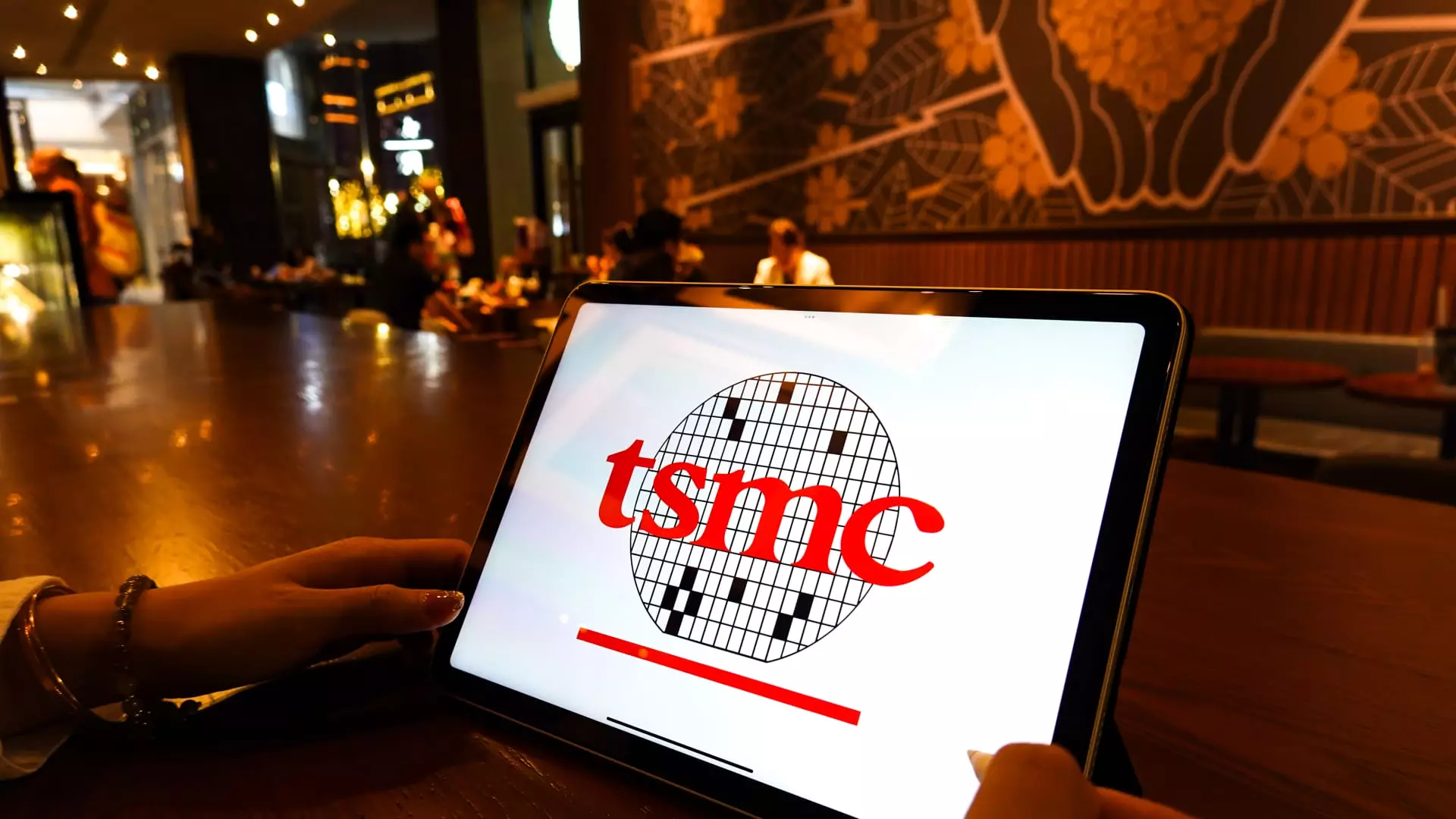The semiconductor industry is undergoing profound transformations driven by technological advancements, most notably artificial intelligence (AI). Leading the charge in this thriving sector is the Taiwan Semiconductor Manufacturing Company (TSMC), which recently reported impressive quarterly earnings, showcasing the company’s ability to capitalize on burgeoning market demands. This article delves into TSMC’s financial performance, its strategic initiatives, and the broader implications of its growth on the semiconductor landscape.
In the third quarter of the fiscal year, TSMC announced a remarkable 54% increase in net profit, amplifying its standing as a vanquisher within the semiconductor market. With a reported net income of 325.3 billion Taiwanese dollars (approximately $10.1 billion), TSMC not only exceeded analysts’ expectations—with estimates averaging 300.2 billion Taiwanese dollars—but also set lofty projections for the future. The company’s net revenue climbed to $23.5 billion, marking a 36% year-on-year increase.
These figures underscore TSMC’s position as the world’s largest producer of advanced chips, catering to high-profile clientele such as Apple and Nvidia. As the semiconductor industry aligns itself with the rapid technological advancements fueled by AI, TSMC is ideally positioned to leverage its cutting-edge 3nm and 5nm technologies, driving demand particularly in the smartphone sector and innovative AI applications.
Looking ahead to the final quarter of the year, TSMC anticipates revenue between $26.1 billion and $26.9 billion, translating to an impressive 35% year-on-year increase based on the most optimistic projections. This optimistic outlook was articulated by Chief Financial Officer Wendell Huang, who emphasized the company’s resilient business model amidst a backdrop of rapid technological evolution.
TSMC Chairman and CEO C.C. Wei echoed these sentiments during a recent earnings call, asserting that the demand for AI chips is not merely a fleeting trend but a substantial and growing market. He pointed out that virtually every AI innovator is engaging with TSMC, solidifying the company’s integral role in the AI revolution. The narrative surrounding TSMC is one of not just survival but thriving in an era characterized by significant shifts in consumer technology.
Beyond impressive earnings, TSMC is actively forging its path in global manufacturing with calculated investments aimed at bolstering its production capacities. This year, the company has committed to capital expenditures projected to exceed $30 billion, which represents a strategic investment not only in technology but also in infrastructure.
The establishment of manufacturing sites in crucial markets like the United States and Japan demonstrates TSMC’s commitment to meet regional demand and enhance supply chain resilience. With an investment of $65 billion in three chip plants in Arizona, along with opening its first factory in Japan, TSMC is strategically poised to maintain its competitive edge while catering to evolving market demands.
Despite TSMC’s bullish outlook and expanding operations, some industry observers raise concerns about the long-term sustainability of the AI boom. Recognizing the volatility of technological trends, questions linger regarding the returns on the significant investments pouring into the AI sector. This skepticism is echoed by industry leaders such as Young Liu of Foxconn, who recently indicated that the AI movement, while potent, may take time to achieve its full potential.
The contrasting views create a complex narrative about the semiconductor market’s future. While TSMC currently thrives in the present moment characterized by heightened demand, the path forward will require adaptability and an acute awareness of market dynamics.
TSMC presents a striking example of how a company can successfully navigate the challenges posed by rapidly evolving technological paradigms. Its robust earnings report, investment strategies, and commitment to leveraging AI applications highlight an institution poised for sustained growth. As TSMC continues to push boundaries in semiconductor innovation, its long-term success will ultimately depend on how effectively it manages the fluctuating demands of a competitive and unpredictable market. The coming months will be critical in determining not only TSMC’s trajectory but the broader health of the semiconductor industry in an AI-driven world.

